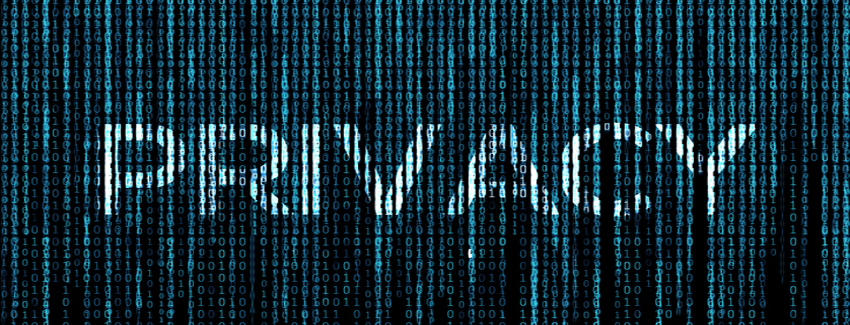
How can one live free in an unfree world? In Capital & Conflict this week, we’ve been looking at the state of privacy and liberty in the 21st Century.
I read all reader emails ([email protected]), although sadly I don’t always have time to respond to them all. Today, I thought I’d share a few I’ve received recently.
Earlier in the week, I asked what you thought of cyber surveillance, and how best to avoid being spied upon.
Surveillance is an increasing part of life. If you want to maintain a high degree of privacy you really need to stay off the internet and avoid doing anything online, using cash only to pay for things. But we are increasingly being pushed to do things online so that isn’t particularly practical. I don’t like the sound of the W3C work but how do you get around it? Or protest against it! Not a fan of being forced to do something I don’t want to do and would probably stop using it if it became too restrictive.
Getting around surveillance is becoming increasingly tricky, especially if you want to use modern technology. Is it possible to be invisible on the internet, a ghost in the machine? Is it even possible to keep data about yourself, your finances and whereabouts private? I’m not sure… but I want to find out. Keep an eye out in the future for updates.
I particularly liked this response:
Is your question a fair question? Should your readers who value their digital liberty and privacy expose their ideas and methods to the possible scrutiny of Big Brother? Indeed, are you one of the watchers phishing for the identities of those who use these techniques?
Enough said.
I can’t really argue with that – I assure you I’m no such “watcher”, but of course, I would say that. And Nick O’Connor, our publisher here at Southbank, did mention that my choice of sunglasses made me look like a CIA operative…
When trust in institutions like the government and the mainstream media begins to fray, society begins its descent into a rabbit hole of doubt: “What is their true agenda?”, “What do they really mean?”, and “Who funds who?” become default responses to public statements.
The popularisation of “fake news” is a symptom of this swell of scepticism. I anticipate doubt will continue to thrive as time wears on. The credibility of mainstream media and the government is in decline, especially amongst the youth.
But this has consequences, which another reader had an interesting take on:
Given the ubiquitous nature of misinformation and disinformation it’s small wonder we have a mental health crisis in the country. People are constantly being told that what they see around them is not reality. It’s seriously disconcerting. Oh, and it’s their own fault if they aren’t thriving in this morass.
Yesterday’s letter on asset forfeiture, and the new “Unexplained Wealth Order” received more mixed feedback.
Surely all you have to do is keep records of all your financial dealings and present them. If you are afraid to present them then you are guilty.
I don’t agree that being “afraid” to reveal your financial dealings to the state automatically makes you “guilty” of anything. The “nothing to hide, nothing to fear” line of reasoning has been used to justify all kinds of gross invasions of privacy, and has no logical limit.
Just because something is hidden, does not mean that it is hidden with sinister intent. After all, why do we have locks on bathroom doors?
The rich, corrupt, and powerful criminal element, and in that I include corrupt politicians, have ways of covering their crimes; bribery of other corrupt politicians and officials, bending or avoiding laws, intimidation, coercion, even murder.
How do you bring these people to justice? Can it even be done?
The measures you describe do sound draconian but if there is no other way, what do you do?
Do nothing?
The vast majority of people will be unaffected by these laws, since they have no appreciable wealth, and if a small minority of wealthy people are inconvenienced I can live with that.
As we have seen in the states, the very laws that were intended to take down high profile criminals were grossly abused by law enforcement, who took millions from citizens who hadn’t been convicted of any crime. This is from the Washington Post:
“Those laws were meant to take a guy out for selling $1 million in cocaine or who was trying to launder large amounts of money,” said Mark Overton, the police chief in Bal Harbour, Fla., who once oversaw a federal drug task force in South Florida. “It was never meant for a street cop to take a few thousand dollars from a driver by the side of the road.”
Although the UWO has been sold as a method to fight the corrupt, from my perspective it is in itself a corrupting influence, and will be forced on the everyman once the authorities get a taste for it. Power corrupts, after all, and the ability to seize property from somebody who hasn’t been convicted of anything is quite a power:
We are getting to the stage of when King John was monarch, and the Sheriff of Nottingham was taking what he wanted, ‘to pay the King’s taxes’.
What recourse does anyone have against this, if as you point out, it only needs someone of some authority, to covet what one has? I cannot see this staying within the limits they have considered at present for very long.
Nor can I. But how will the public respond? Will there be outrage, and uproar? Or will freedom die with a whimper?
Thanks for reading Capital & Conflict. I hope you all have a great weekend!
Until next time,

Boaz Shoshan
Capital & Conflict
Related Articles:
Category: Geopolitics

